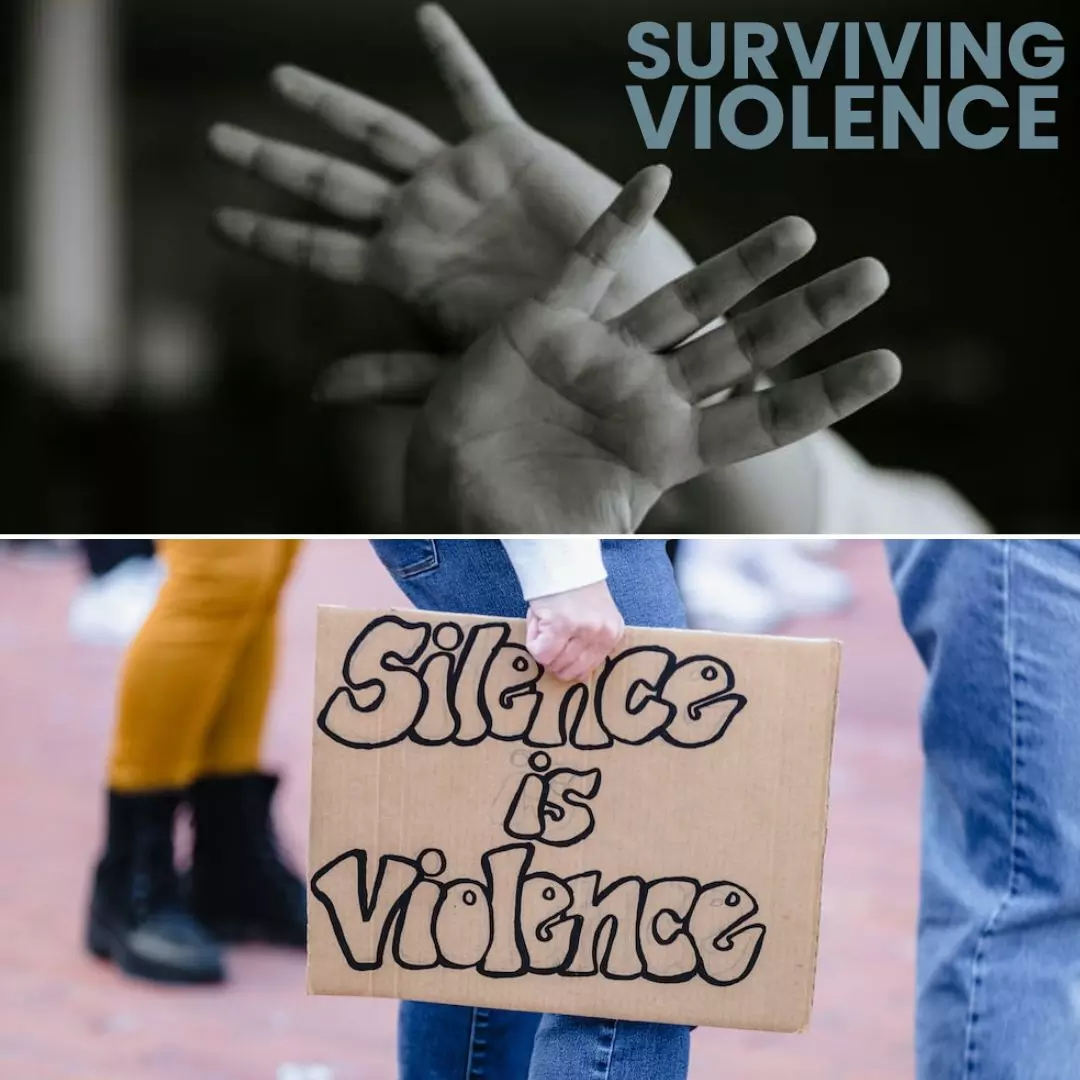
Image Credits: Unsplash, Surviving Violence, Global voices
'Surviving Violence': 80% Domestic Violence Victims Want Abusers Arrested; Unsupportive System & Society Holds Them Back
India, 25 Jan 2023 7:03 AM GMT
Editor : Jayali Wavhal |
She writes about gender issues, human interest, and environment.
Creatives : Laxmi Mohan Kumar
She is an aspiring journalist in the process of learning and unlearning many things. Always up for discussions on everything from popular culture to politics.
The study reflected on the huge gap of understanding between survivors and those around them. While survivors attempt to seek help, about one-third of community members are of the opinion that domestic violence experiences should not be shared.
India has almost always presented a worrying number of gendered violence cases. Despite the number of helplines and schemes that have been put in place, many of these have not been accessible to the survivors. Recently, Swati Jagdish, a sex educator who goes by the name 'Maya's Amma' on social media, posted a series of stories where women called up helpline numbers to report cases of abuse at home. To their surprise, the person advised them that these were normal incidents and that women would have to learn to adjust to the environment. While the survivor was hoping to seek help, those expected to help sent them back to the abusive environment.
With the form of environment and culture that continues to be hostile towards survivors, a recent study titled 'Surviving Violence: Everyday Resilience and Gender Justice in Rural-Urban India' sheds light on how such a system continues to prevail in the country. The study conducted primarily in three states - Tamil Nadu, Maharashtra, and West Bengal, resonates with a larger population in the country that has time and again spoken of gendered violence.
Majority Hope To Receive Justice
According to a report by the National Crime Records Bureau, Crime in India 2005, the country saw crimes being committed against women every three minutes, and about 37 per cent of married women experienced domestic violence during their marriage. Families, which are believed to be building blocks of society, undermine the ideas of gender justice by subjecting their members to violence. Despite the many legal initiatives in the country against domestic violence, civil society organisations have reported very little progress in ensuring these services are accessible to support and provide justice to the survivors. According to the research study forwarded to The Logical Indian, consequently women are forced to turn to informal, non-legal strategies and networks to cope with the situation and seek justice.
However, one important aspect highlighted in the study is that around 80 per cent of the survivors have expressed that they want their abusers arrested. The majority of them would like to see the perpetrators of violence brought to justice. Meanwhile, only 57 per cent of community members and 55 per cent of service providers believed that criminal law should come into the picture. The project interviewed about 60 survivors, 30 community members, and service providers such as non-governmental organisations, government officials, medical practitioners, lawyers, and police personnel in urban, semi-urban, and rural areas.
Call For A Systemic Change
The study, funded by the British Academy under their Heritage, Dignity and Violence Programme (2020-2022), was presented by Swarna Rajagopalan, co-investigator for the project and founder of The Prajnya Trust. The study established a growing gap between survivors and those around them. While 83 per cent of the survivors and 73 per cent of community members believe domestic violence is punishable under criminal law, a lag in the per cent was noted among two categories responsible for justice - lawyers and police.
About one-third of community members believe that domestic violence experiences should be kept within the walls of the houses and should not be shared. The data also showed that with such an inhospitable environment, it would be unlikely for the survivors to seek help without judgement or advice to adjust to the violence. Seeking to change this environment surrounding the victim, the study recommended gender sensitisation for government officials at various levels to attend to such cases with the necessary sensitivity and responsibility. It is only through a systemic change that real transformation can be brought in, and this should start reflecting right from the school curriculums. The report also further emphasised the need to create platforms for community engagement and generate awareness.
Also Read: Delhi High Court Issues New Guidelines For Underage Survivors In Sexual Assault Cases
 All section
All section














